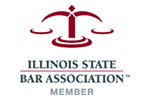800.825.9260
Electronic Wills and Remote Signing of Wills
Our estate planning practice in trusts, wills and estates has adjusted to meet the requirements and take advantage of the opportunities contained in the Electronic Wills and Remote Witnesses Act, signed into law July 26, 2021.
In response to the pandemic forcing us to work remotely, the Act authorizes both the creation of electronic wills and the ability to remotely sign and attest to those wills. It also puts into place steps for handling probate of wills that are electronically created and remotely signed and attested. Lastly, it formalizes in a statute the emergency executive order signed by Illinois Governor Pritzker at the outset of the pandemic approving notary and witness guidelines.
Electronic Will Creation
To be valid under the Act, an electronic will must be a tamper-evident record that is executed by either the testator – the person leaving the will – or someone the testator directs to do so in their presence, who cannot be either a named beneficiary, or the spouse or child of someone named as a beneficiary.
Two or more credible witnesses must attest to the will by signing the will in the presence of the testator after seeing the person leaving the will sign it themselves. This attestation must be notarized to avoid the witnesses coming into court to testify that they saw the will signed. If remotely attested to, the will must also meet the requirements under that scenario, which will be detailed below.
The definition of “in the presence” means either:
- in the same location and able to physically see that the other person in the room is signing a document, or
- able to know the other person is signing that document with the help of remote audio and video technology.
Remote Will Attestation
The Act defines a remote witness as someone in communication with the will testator or signer via audio and video technology. Such a remote witness may attest to the signing of a paper will, an electronic will, or a paper copy of an electronic will.
The will must be executed in the State of Illinois and adhere to the other requirements set forth above, including being signed by the testator or a designated representative in their presence, as well as two or more credible witnesses who are in the United States at the time and who can attest to the document.
Within 10 days of the attestation, the testator or their designee must attach any separate signature pages, attestation clauses or affidavits, or at least a copy of same, to either a paper document or a paper copy of the electronic document that’s signed by the testator.
When handled via audiovisual technology, the witness needs to be able to identify the testator because they either personally know the will creator, by using a government-issued or other picture identification, or through identity proofing.
How Probate Works
Legislation allowing for electronic or remotely attested wills would of course be incomplete without procedures and requirements related to probate. See our webpage describing Probate for more information.
Probate petitions for electronic wills must attest to the fact that such records are tamper-evident and have not been changed aside from electronic signatures and other run-of-the-mill alterations.
For paper copies of electronic wills to be admitted to probate, they must either be certified through the process provided by the statute, by whomever converts the electronic copy to paper; or supported by enough evidence to contradict the premise that the testator nullified the electronic will, which holds sway if neither the electronic will nor a certified paper version can be found.
If remote witnesses have been employed for attestation, they must confirm participation by testifying in court or submitting either an attestation clause or an affidavit. If someone other than the testator has obtained and attached the remote witnesses’ signature page or their written attestation clause or affidavit, that person must, in turn, confirm their own participation and knowledge by either testifying in court or through one of the same written methods.
The Electronic Wills and Remote Witnesses Act also provides procedures and requirements for formally proving electronic wills or those attested to by remote witnesses, as well as for probate admission or formal proof of wills with remote witnesses during the period covered by the original COVID-19 emergency declaration.
Formal COVID Guidelines Approval
Ultimately, the act provides a statutory stamp of approval for the notary and witness guidelines created by Governor Pritzker under Executive Order 2020-14 that enabled remote witnessing and notarization.
The guidelines will extend until 30 days after the emergency declaration is lifted, which means that during that period, remote notarization can occur as well as it’s done using two-way audio-video technology, the notary public is both located and commissioned in Illinois, and the transaction conforms with the Secretary of State’s current guidance and rules.
The full text of the Electronic Wills and Remote Witnesses Act is available online.
The firm of Bellas & Wachowski Attorneys at Law can help you make the necessary estate planning decisions in a cost-effective manner. Contact Attorney Tracy Ries at tracy@bellas-wachowski.com 847.823.9030 x221 for more information.










